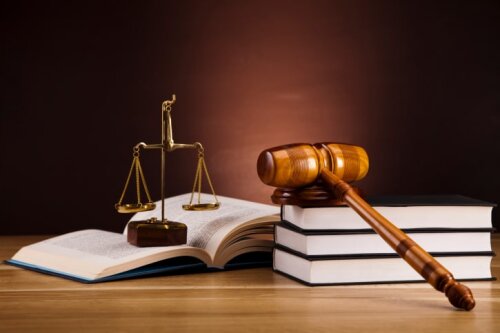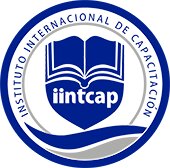Best Housing, Construction & Development Lawyers in Santiago de los Caballeros
Share your needs with us, get contacted by law firms.
Free. Takes 2 min.
Free Guide to Hiring a Real Estate Lawyer
List of the best lawyers in Santiago de los Caballeros, Dominican Republic
About Housing, Construction & Development Law in Santiago de los Caballeros, Dominican Republic
Santiago de los Caballeros, the second-largest city in the Dominican Republic, is a vital hub for housing, construction, and real estate development in the Cibao region. Local growth and urban development have led to a dynamic market for residential, commercial, and industrial properties. The legal landscape governing these sectors is shaped by national legislation, municipal ordinances, and specific requirements related to property ownership, zoning, building codes, and permits. Whether you are a resident, developer, investor, or business owner, understanding the legal framework is essential to ensuring projects are successful, compliant, and protected from disputes.
Why You May Need a Lawyer
Legal guidance is often critical in housing, construction, and development matters. Common situations where individuals and companies may require legal help include:
- Buying or selling property and ensuring clean title transfer
- Drafting and reviewing contracts for construction projects
- Resolving disputes with builders, contractors, or tenants
- Securing building permits and addressing zoning issues
- Legalizing property titles or resolving boundary conflicts
- Assisting with real estate investment regulations
- Addressing housing code violations or non-compliance with municipal regulations
- Negotiating lease agreements for residential or commercial properties
- Representing clients in court or before regulatory authorities
- Ensuring compliance with environmental and urban planning requirements
The help of a qualified lawyer ensures all procedures are completed correctly, decreasing the risk of legal setbacks, fines, or future disputes.
Local Laws Overview
Several key laws and regulations govern housing, construction, and development in Santiago de los Caballeros. Important aspects include:
- Real Estate Law: Dominican property law, including provisions in the Civil Code and Ley de Registro Inmobiliario, regulates the registration and transfer of property ownership. The land title (Certificado de Título) is the key document establishing legal rights.
- Urban Planning and Zoning: The Ayuntamiento (Municipal Government) manages urban planning, land use, and zoning to ensure orderly development, regulate building heights, green spaces, and area use.
- Construction Permits: All construction projects must secure proper permits from municipal authorities. This process involves project submission, environmental assessment (if applicable), and adherence to safety and quality standards.
- Condominium Law: Law 5038 on Condominiums regulates multi-story or shared ownership buildings, including co-ownership rules, homeowners associations, and conflict resolution
- Rental Agreements: Residential and commercial leases are governed by specific regulations relating to contract duration, rent increases, tenant rights, and eviction procedures.
- Foreign Investment: Non-citizens can own property in the Dominican Republic, but must comply with the same regulatory requirements as nationals and may face additional due diligence.
- Tax Regulations: Property transactions are subject to transfer taxes, annual property taxes (IPI), and potentially other fiscal obligations depending on the type and value of the property.
Frequently Asked Questions
What documents are needed to buy real estate in Santiago de los Caballeros?
You will need a valid identification (passport or cedula), a signed purchase agreement, proof of payment, and the original property title. Your lawyer will verify that the title is clear, with no liens or encumbrances, and handle registration with the Registro de Títulos.
Can foreigners own property in Santiago de los Caballeros?
Yes, foreigners can own property in the Dominican Republic with no restrictions. They have the same rights and obligations as Dominican citizens but may need to provide additional documentation and translations.
How is property transferred from one party to another?
Property transfer involves signing a sales agreement, paying transfer taxes, and registering the change in ownership at the local Registrar of Titles. Title due diligence is essential to avoid future legal problems.
What is the role of the Ayuntamiento in construction projects?
The Ayuntamiento (Municipal Government) approves construction permits, enforces zoning and safety codes, and oversees compliance with urban development regulations.
What is a Certificado de Título?
A Certificado de Título is the official land title document issued by the Registro de Títulos. It provides legal proof of property ownership and should be checked for any liens or restrictions before any transaction.
Are building permits always required for construction?
Yes, almost all new construction, major renovations, or expansions require building permits from the municipal authorities. Building without permits may result in fines, demolition orders, or other penalties.
What protections do tenants have under Dominican law?
Tenants are protected by regulations covering contract terms, rent increases, eviction processes, and minimum habitability standards. Disputes should be resolved through negotiation or, failing that, legal action.
What should I do if I find out a property has unresolved liens or debts?
Consult a lawyer before proceeding. Liens, debts, or encumbrances can prevent proper transfer of title and may become the responsibility of the new owner if not resolved prior to purchase.
How do I resolve a boundary dispute with a neighbor?
Boundary disputes can be resolved through negotiation, surveyor reports, and, if necessary, court proceedings. Legal advice is crucial to avoid escalation and ensure rights are protected.
What are the common taxes associated with real estate transactions?
Buyers typically pay a property transfer tax (3 percent of property value), and property owners may be subject to the annual IPI (Impuesto al Patrimonio Inmobiliario) if the property value exceeds a specific threshold. Some exemptions may apply.
Additional Resources
Several agencies and organizations can assist individuals and businesses with legal matters related to housing, construction, and development in Santiago de los Caballeros:
- Ayuntamiento de Santiago: Responsible for urban planning, permitting, and local building regulations
- Jurisdicción Inmobiliaria (Registro de Títulos): Handles registration of property titles, transfers, and verification of property status
- Ministerio de Vivienda y Edificaciones: Supervises housing policy, construction standards, and development initiatives
- Colegio Dominicano de Ingenieros, Arquitectos y Agrimensores (CODIA): Professional association for engineers, architects, and surveyors
- Local Bar Associations: Offer lists of qualified attorneys specializing in real estate, housing, and construction law
- Chamber of Commerce and Production of Santiago: Provides information for business investors and developers
Next Steps
If you require legal assistance in housing, construction, or development matters in Santiago de los Caballeros, follow these steps:
- Gather all relevant documents, such as titles, contracts, permits, and personal identification
- Identify the specific issue you need legal help with, such as buying property, resolving disputes, or securing permits
- Seek a lawyer experienced in local real estate, housing, or construction law - referrals from local bar associations can be valuable
- Schedule a consultation to discuss your case and receive guidance on your rights and obligations
- Follow your lawyer’s advice and ensure all procedures are correctly carried out according to local laws
- Stay informed about deadlines, documentation, and any required appearances before municipal or judicial authorities
Acting promptly and seeking expert advice at the earliest sign of legal complexity helps protect your interests and ensures the success of your project or transaction in Santiago de los Caballeros.
Lawzana helps you find the best lawyers and law firms in Santiago de los Caballeros through a curated and pre-screened list of qualified legal professionals. Our platform offers rankings and detailed profiles of attorneys and law firms, allowing you to compare based on practice areas, including Housing, Construction & Development, experience, and client feedback.
Each profile includes a description of the firm's areas of practice, client reviews, team members and partners, year of establishment, spoken languages, office locations, contact information, social media presence, and any published articles or resources. Most firms on our platform speak English and are experienced in both local and international legal matters.
Get a quote from top-rated law firms in Santiago de los Caballeros, Dominican Republic — quickly, securely, and without unnecessary hassle.
Disclaimer:
The information provided on this page is for general informational purposes only and does not constitute legal advice. While we strive to ensure the accuracy and relevance of the content, legal information may change over time, and interpretations of the law can vary. You should always consult with a qualified legal professional for advice specific to your situation.
We disclaim all liability for actions taken or not taken based on the content of this page. If you believe any information is incorrect or outdated, please contact us, and we will review and update it where appropriate.














